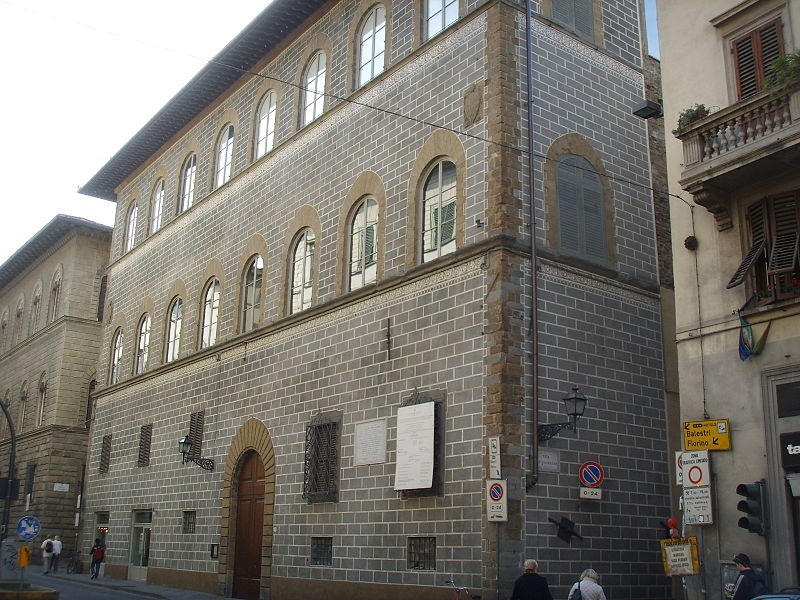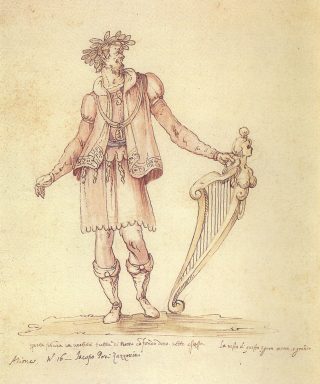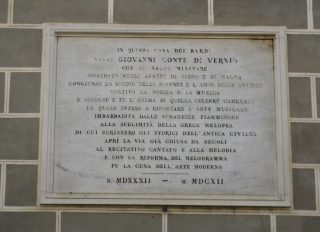Do you like the Opera? Do you know that it was born in Florence?
The story starts with the Camerata de’ Bardi, a group of humanists and musicians active in Florence since January 14 1573. Their members used to meet in Palazzo Bardi, residence of Giovanni de’ Bardi (who later joined the Accademia della Crusca with the nickname Incrusciato).
Camerata’s members included Vincenzo Galilei, father of the most famous Galileo Galilei, Giulio Caccini, Emilio de’ Cavalieri, Francesco Rasi, Girolamo Mei, Ottavio Rinuccini and Jacopo Peri (nicknamed Zazzerino). The name Camerata was first used by Giulio Caccini.
Discussing music, literature, science and art related topics, with the goal of proposing a reinassance of the ancient Greek dramatic style, they developed a new delivery style: the stile recitativo (and in particular the so called recitativo secco) through which a melodic line was used to tell a story, accompanied by simple chords played by a harpsichord or a lute. Vincenzo Galilei, in his Dialogo della musica antica et della moderna (Dialogue on Ancient and Modern Music), thought about simplicity as a way to rediscover the ancient Greek tradition, writing about “a return to the simplicity of ancient monody” [3].
This musical conception eventually evolved in a singing style that revolutionized the way of making theatre: it was the birth of the recitar cantando, the acting while singing. The first Opera to be written was the Euridice by Jacopo Peri and Giulio Caccini, composed in Florence, with a libretto of the poet Ottavio Rinuccini. The first performance was in Florence on 6 October 1600 at the Palazzo Pitti (Peri sang the role of Orfeo).
Bibliography:
[1] Vincenzo Galilei (1581), Dialogo della musica antica et della moderna.
[2] Giovanni de’ Bardi, Dizionario Biografico degli Italiani, vol. 6 1994.
[3] Pirrotta, N., Fortune N., Temperaments and Tendencies in The Florentine Camerata, The Musical Quarterly, XIJ2, 1954, 169-189.
[4] Donington, Robert (1981), The Rise of Opera. New York.
[5] Grout, Donald Jay (1947), A Short History of Opera: One-Volume Edition. New York, Columbia University Press.
[6] Palisca, Claude V. (1989). The Florentine Camerata: Documentary Studies and Translations. Music Theory Translation Series. New Haven, Yale University Press.
[7] Katz, R., Collective ‘problem solving’ in the History of Music: The Case of The Camerata, Journal of the History ofldeas, XLV/3, 1984, 361-377.



